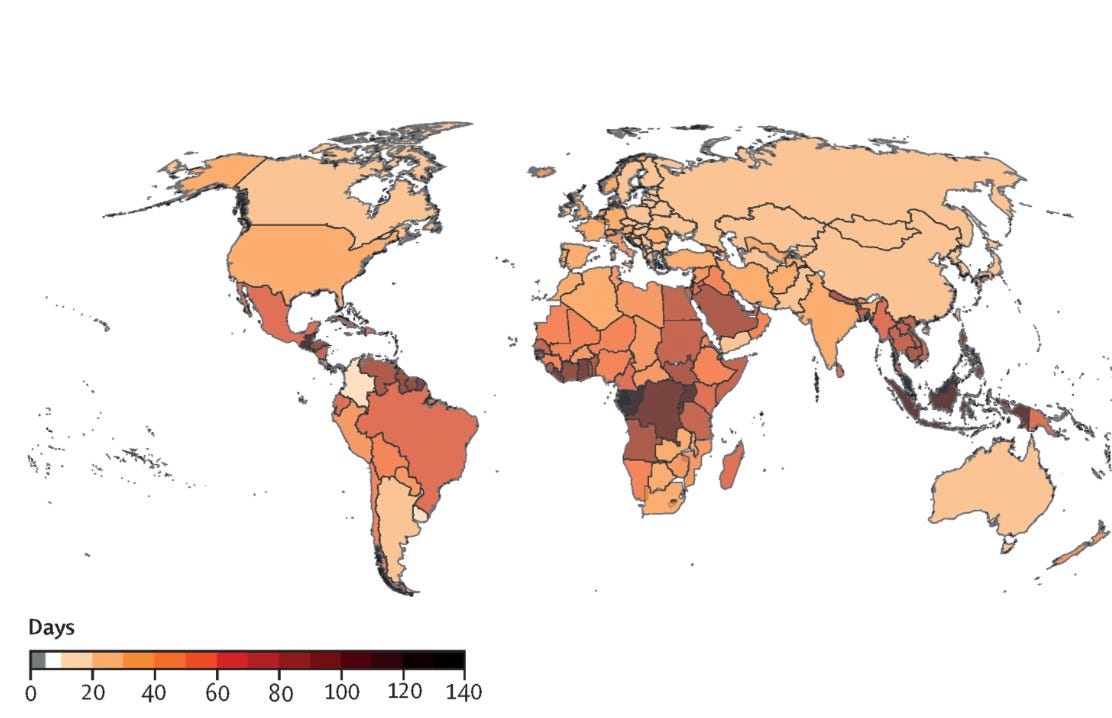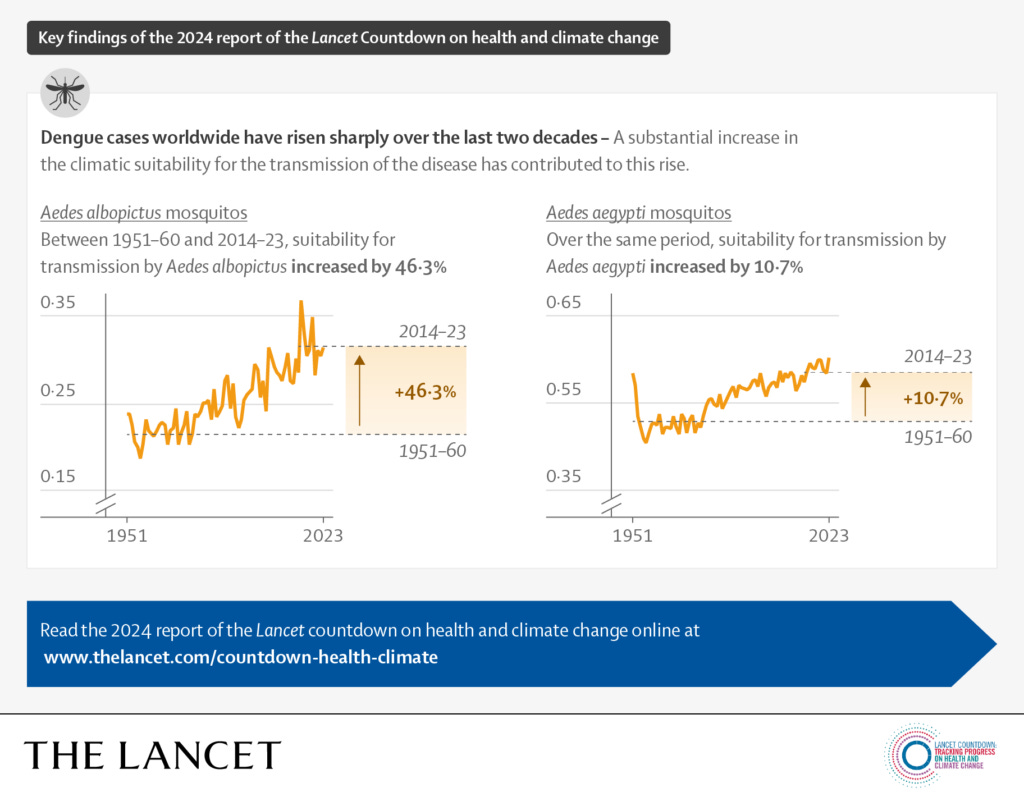“People all around the world are facing record-breaking threats to their well-being, health, and survival from our rapidly changing climate.”
People all around the world are facing record-breaking threats to their well-being, health, and survival from our rapidly changing climate, according to the new Lancet Countdown on Health and Climate Change report by 122 leading researchers led by the medical journal The Lancet.
The threats we face to our health are the most worrying they’ve ever seen. It’s a huge report, but I’ve boiled it down to a few (grim) bullets:
Last year, people were exposed to an unprecedented 50 more days of health-threatening heat than expected without climate change
Heat-related mortality of people older than 65 years increased by a record-breaking 167%, compared with the 1990s
Human exposure to dangerous amounts of desert dust increased by 48% between 2003–07 and 2018–22
48% of the global land area was affected by at least 1 month of extreme drought in 2023
The risk of wildfires increased in 66% of countries between 2003–07 and 2019–23
61% of the global land area saw an increase in the number of days of extreme precipitation compared to 1961–90
151 million more people experiencing moderate or severe food insecurity in 2023, the highest ever recorded, largely due to droughts and heatwaves
Changing precipitation patterns and rising temperatures increased transmission of deadly infectious diseases such as dengue, malaria, West Nile virus-related illness, and vibriosis
Average annual economic losses from weather-related extreme events increased by 23% from 2010–14 to 2019–23, to US$227 billion (a value exceeding the gross domestic product [GDP] of about 60% of the world's economies
Despite the clear danger to our health, oil and gas giants have expanded their production plans, and are on track to exceed their emissions compatible with 1·5 degrees C by 189% in 2040, the report concluded. The resulting expansion of fossil fuel production will also jeopardize the economies on which people's livelihoods depend.
Avoiding a catastrophic increase in death, disease, and destruction will require urgent, decisive, and health-focused actions, exceeding the ambition of international commitments, the Lancet report concluded.
So what can you and I do about all this?
Here are some ideas gleaned from past issues of Ntk:
Need-to-Know: Reducing your carbon footprint makes you feel good
One of the least discussed things we can do is align our thinking, expectations, and decisions with the goal of reducing emissions by 50% by 2030. Then, we do what we can to achieve that goal.
Need-to-Know: Very important to reward and praise those taking action to protect the climate
Value, encourage, and praise individuals, organizations, and countries who are doing what they can to protect the environment.
Need-to-Know: Bad climate behavior needs to be named and shamed
Climate-unfriendly behavior by individuals, corporations, and governments at all levels needs to be discussed, named as such, and publicized.
Need-to-Know: Ensure everyone knows we’re in a climate crisis
People are often misled into thinking the risk is small, or that it will never affect them or their families. Help them understand.
Need-to-Know: Small changes can have a big impact, and make it easier for other people to join in
The ease of use and effectiveness of our old battery-powered lawn mower has inspired neighbours to ditch their hard-to-start, noisy-smoke belchers to go electric.
Small changes on our journey to low-carbon living can improve our lives. Walking or biking to the store isn’t a chore but one of life’s little pleasures.
This shouldn’t be stressful or make anyone feel guilty. Simply do what feels right.
Need-to-Know: Banks are fuelling the climate crisis. Change where you bank
I have a couple of posts on how to find out about your bank’s investments and where to get a greener one: Banking on the Future and Big Banks (Still) Pumping Billions Into Fossil Fuels
Need-to-Know: Advertising drives a dangerously dysfunctional consumer society
We’ve designed our economy around making and selling ever more stuff. That’s clearly unsustainable. A circular economy is all about sufficiency:
Reuse what you can
Recycle what cannot be reused
Repair what is broken
Remanufacture what cannot be repaired.
Ownership gives way to stewardship; consumers become users and creators. The remanufacturing and repair of old goods, buildings, and infrastructure creates skilled jobs in local workshops. Many goods are sold as services through rent, lease, and share business models.
I hope some of this is helpful and you can share it with others.
Until next time, be well.
Stephen





